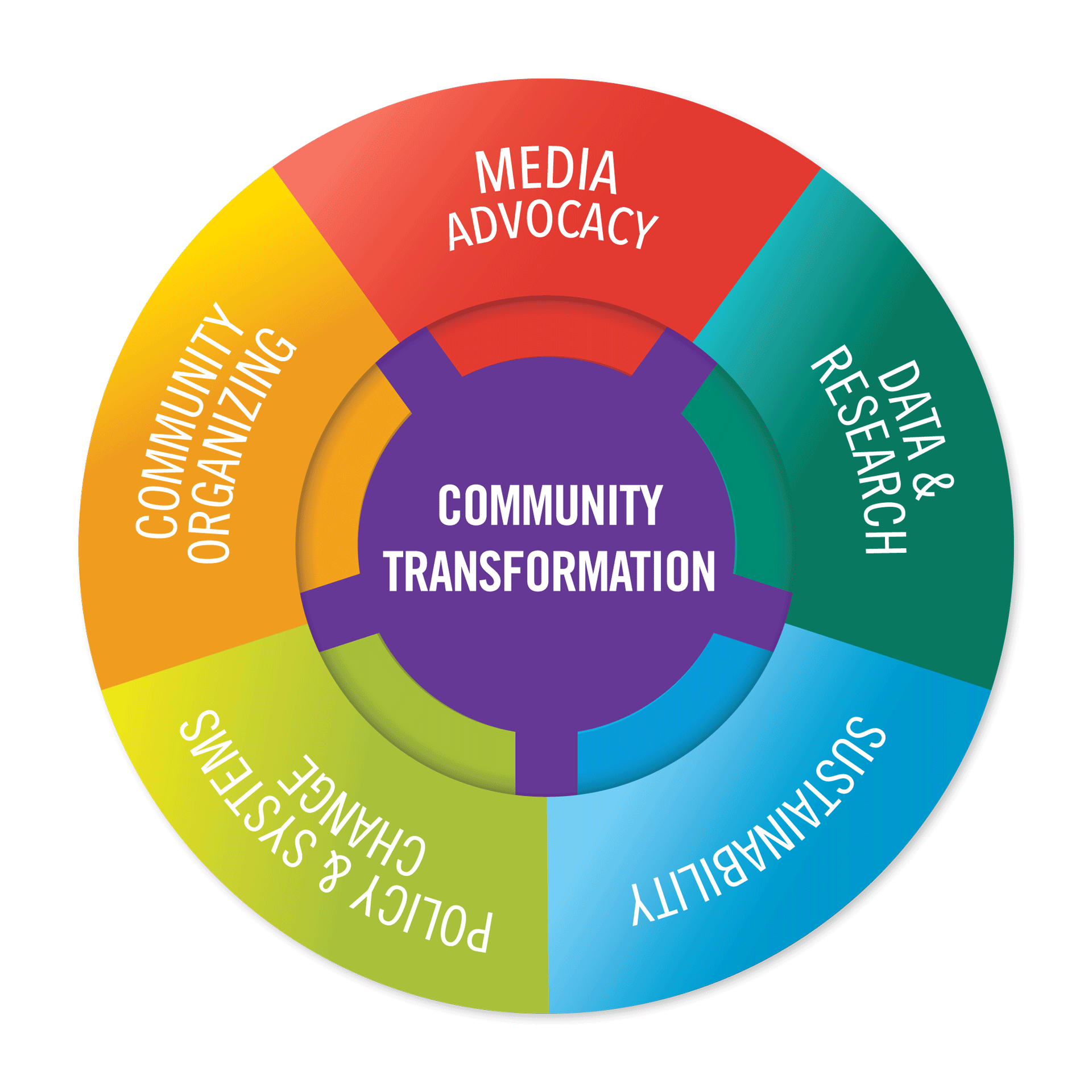 The ACT Model
The ACT Model
IPS’s Approach to Community Transformation (ACT) Model is our proven framework for creating lasting population-level change and advancing equity. The ACT Model is an upstream approach. Its six components strategically intersect to transform communities and to address social, cultural, physical, environmental, political, economic, and institutional barriers to equity.
The ACT Model has been utilized in communities around the nation. It is applied in partnership with community members.






